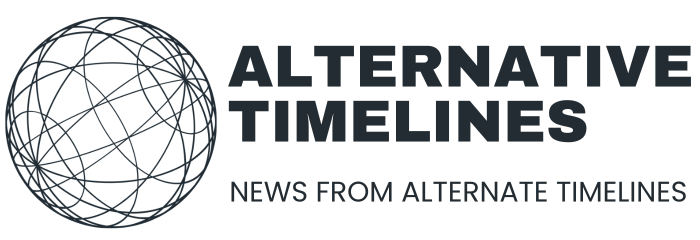
In a world where everyone could see their own future, society would undergo profound changes in every aspect of life, from personal decisions to global politics. The ability to glimpse one’s future would be governed by a mysterious phenomenon, perhaps a result of an unprecedented scientific breakthrough or a supernatural event. This newfound ability would impact human behavior, relationships, and societal structures in complex and unexpected ways.
The immediate effect on individuals would be immense. People would begin to make decisions with the foresight of their future outcomes. Career choices, relationships, and financial investments would be made with a degree of certainty that was previously unimaginable. The concept of risk would be fundamentally altered, as people navigated their lives with a clear understanding of the consequences of their actions.

On a personal level, the ability to see one’s future would lead to greater self-awareness and personal growth. Individuals could identify and address future challenges and opportunities, leading to more fulfilled and purposeful lives. However, this ability would also come with significant emotional and psychological burdens. The knowledge of future hardships, illnesses, or the deaths of loved ones could lead to anxiety, stress, and a sense of helplessness.
Relationships would be deeply affected. People might enter into relationships knowing their eventual outcomes, which could either strengthen bonds or lead to their premature end. The divorce rate could decrease as individuals choose partners they know they will be compatible with long-term, or it might increase as people decide to avoid future heartbreaks. Friendships and family dynamics would also shift, as future conflicts and reconciliations would be anticipated and managed proactively.
The economy would experience dramatic shifts. Financial markets would become more stable as investors made informed decisions based on future knowledge. However, this could lead to a new form of inequality, where those with more precise or favorable future insights gain an unfair advantage. Governments might implement regulations to prevent the misuse of future knowledge, creating new ethical and legal frameworks to manage this unique ability.
Education and career planning would become highly individualized. Students would pursue paths that align with their future success, leading to a more efficient and motivated workforce. The job market would adapt, with career counselors and mentors specializing in helping individuals interpret and act on their future visions.
Health and wellness would see significant advancements. Preventative healthcare would become the norm, as people take proactive measures to avoid future illnesses. Medical research would benefit from patients’ knowledge of their future health conditions, leading to more targeted and effective treatments. However, the burden of knowing about incurable diseases or unavoidable health issues could lead to ethical dilemmas and psychological distress.
The criminal justice system would face unique challenges. The ability to foresee future crimes could lead to a preventative approach to law enforcement, but it would also raise serious ethical and legal questions about free will and personal responsibility. The concept of pre-crime, popularized by science fiction, could become a reality, requiring society to balance security with individual rights.
On a global scale, politics and international relations would be transformed. Leaders and policymakers would make decisions with the knowledge of their future impacts, potentially leading to more effective governance and long-term planning. Diplomatic strategies would evolve, with nations anticipating and avoiding conflicts. However, the manipulation of future knowledge for political gain could lead to new forms of power struggles and corruption.
Culturally, the ability to see the future would inspire new forms of art, literature, and philosophy. Creative expressions would explore the implications of future knowledge, human destiny, and the nature of time. Philosophical and ethical debates about free will, determinism, and the morality of future actions would become central to societal discourse.

Religion and spirituality would also be affected. Some might view the ability to see the future as a divine gift or a cosmic revelation, while others might struggle with the implications for faith and predestination. Religious leaders and communities would seek to integrate this new reality into their beliefs and practices.
Ultimately, the world where everyone could see their own future would be one of both unprecedented opportunity and profound complexity. The ability to glimpse what lies ahead would empower individuals to make informed choices and lead more intentional lives. However, it would also challenge humanity to navigate the ethical, emotional, and societal implications of such knowledge. The balance between leveraging future insights for personal and collective good while preserving the essence of free will and human experience would define this extraordinary era.




